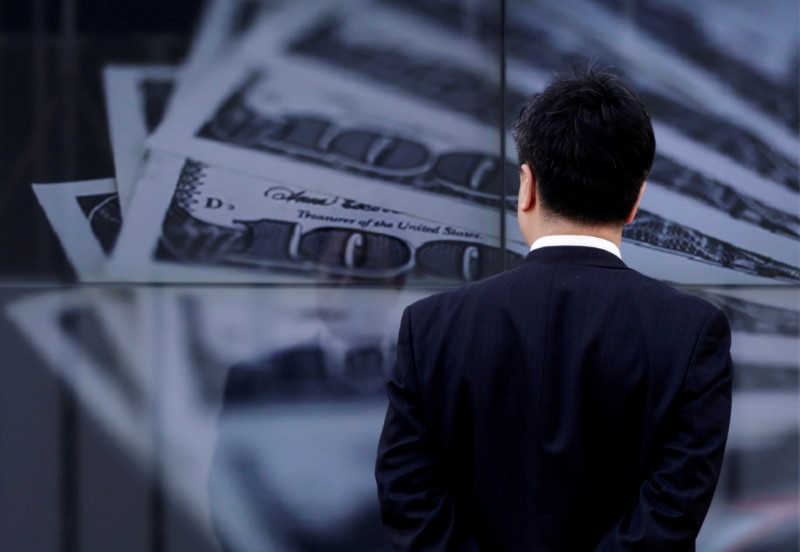Bill Gross warns on gold momentum as regional bank stocks tumble
Investing.com - The safe haven yen and Swiss franc look likely to strengthen when markets open this week amid heightened geopolitical tensions in the Middle East after weekend attacks on Saudi oil plants disrupted global oil supplies.
The U.S. dollar will also be in focus ahead of an expected interest rate cut by the Federal Reserve on Wednesday. Meanwhile Thursday will bring policy meetings in Japan, the U.K., Norway and Switzerland in the wake of Wednesday’s Fed decision and last week’s stimulus package from the European Central Bank.
The euro was higher the dollar on Friday for a second day after the ECB on Thursday exempted euro zone banks from a penalty charge, which analysts say will reduce the currency impact of new stimulus.
The ECB on Thursday cut its deposit rate to a record low -0.5% from -0.4% and said it will restart bond purchases of 20 billion euros a month from November. The purchases will run for as long as necessary and end shortly before it starts raising the key ECB interest rates.
The single currency initially dropped on the new stimulus, testing more than two-year lows, before dramatically changing direction.
The euro was up 0.1% to $1.1073 late Friday. The single currency fell as low as 1.0925 immediately after the ECB decision on Thursday.
Hopes of de-escalation in the U.S.-China trade war also helped turn the euro around after the ECB decision.
U.S. President Donald Trump said on Thursday he preferred a comprehensive trade deal with China but did not rule out the possibility of an interim pact, even as he said an “easy” agreement would not be possible.
Data on Friday showed that U.S. retail sales increased more than expected in August, pointing to solid consumer spending that should continue to support a moderate pace of economic growth. That comes after better-than-expected producer price inflation data on Wednesday and consumer price data on Thursday.
The improving indicators are unlikely to sway the Fed from cutting interest rates on Wednesday.
The British pound extended the week’s rally on Friday as investors pounced on a media report that Northern Ireland’s largest political party had agreed to accept some European Union rules after Brexit.
The report in the Times newspaper was swiftly denied by the party but still supported the view that Britain and the EU can agree a deal to replace the Irish backstop, the main sticking point in negotiations between London and Brussels.
Having hit a three-year low below $1.20 earlier this month, sterling has soared since the British parliament voted to stop Johnson’s government from taking Britain out of the European Union on Oct. 31.
The British currency has now rallied 4% in just eight days, a significant reversal of fortunes from earlier this month when talk of a no-deal Brexit intensified.
Ahead of the coming week, Investing.com has compiled a list of significant events likely to affect the markets.
Monday, Sept 16
China - Industrial production, fixed asset investment, retail sales
Tuesday, Sept 17
Eurozone - German ZEW economic sentiment
U.S. - Industrial production
Wednesday, Sept 18
U.K. - CPI
Canada - CPI
U.S. - Building permits, housing starts
Federal Reserve interest rate decision & press conference
Thursday, Sept 19
Bank of Japan rate decision
Swiss National Bank rate decision
Bank of England rate decision
Norges Bank rate decision
U.S. - Jobless claims, Philly Fed, existing home sales
Friday, Sept 20
Canada - retail sales
U.S. - FOMC Member Rosengren Speaks
-- Reuters contributed to this report
